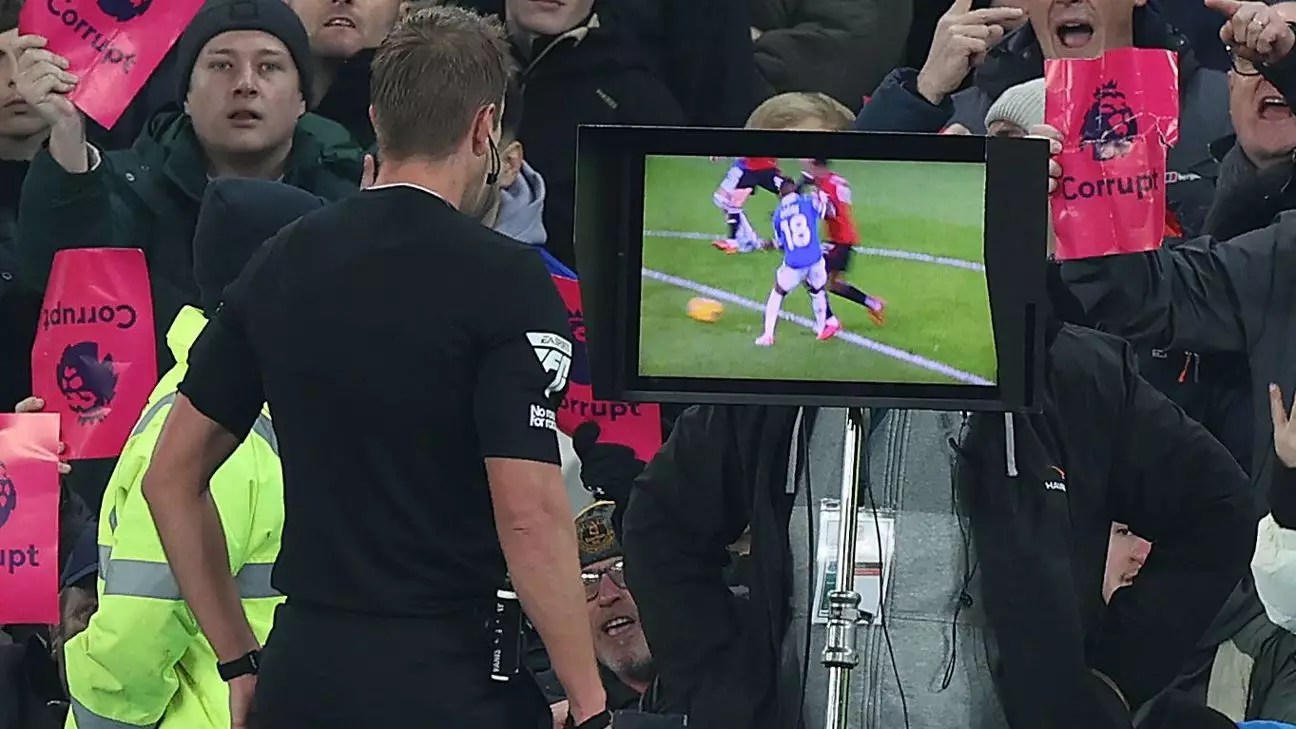The Premier League has been witnessing a decline in VAR errors this season, which is a positive development. However, Chief Football Officer Tony Scholes has raised concerns about the excessive number of checks and the prolonged duration of these checks, stating that they are hindering the effectiveness of the video review system. While the number of mistakes has decreased, the time taken for reviews has significantly increased since a controversial decision involving Luis Díaz’s goal for Liverpool against Tottenham Hotspur. Scholes emphasized that these extensive delays are impacting the flow of the game and the overall fan experience, areas that the Premier League aims to enhance.
Scholes emphasized the importance of making VAR decisions more promptly but acknowledged the challenge of balancing speed and accuracy. While he expressed the need for quicker decisions, he also highlighted the significance of maintaining high levels of accuracy in the review process. Implementing time limits on VAR reviews could potentially jeopardize the accuracy of decisions, which is a critical factor that cannot be overlooked. Scholes stressed the importance of training and development for VAR officials to enable them to make decisions based on the available facts without excessive double or triple checking.
Howard Webb, the Chief Refereeing Officer, has proposed appointing new coaches and VAR specialists to elevate refereeing standards, a move supported by the Premier League. While this initiative is underway, it is a process that will require time to yield significant results. Clubs have also increased funding to the PGMOL to enhance the Elite Referee Development Plan, indicating a collective effort to revamp the refereeing structure. The Independent Key Match Incidents Panel assesses all contentious incidents, providing valuable insights for clubs and referees alike.
Liverpool has been the most affected team this season, experiencing four VAR errors, followed by Brighton & Hove Albion and Wolverhampton Wanderers with three mistakes each. Aston Villa has benefited the most from VAR decisions, with three mistakes in their favor. The accuracy of key match decisions has seen a significant improvement, rising from 82% pre-VAR to 96% this season. Scholes defended the quality of refereeing in England, stressing the continuous need for improvement to align with the standards set by players and coaches.
While a majority of fans still support VAR, Scholes acknowledged that there is room for improvement in the stadium experience. He highlighted the constraints imposed by IFAB on audio usage during and after VAR reviews but expressed optimism about transitioning to a system where both video and audio are shared live with spectators. The imminent introduction of referees announcing decisions post-VAR review to the crowd on the pitch side aims to enhance transparency and communication with fans.
The Premier League is conducting non-live tests on semi-automated offside technology, with a final decision on its adoption expected to be made by clubs in the spring. While this technology has been successful in other leagues and competitions, concerns remain about its potential impact on decision-making accuracy. Scholes highlighted the importance of addressing edge cases and ensuring that the system can adapt to complex scenarios without unintended consequences. Effective playing time has increased following measures to combat time-wasting, showcasing ongoing efforts to improve the efficiency of matches in the Premier League.
While VAR has brought significant advancements to football, there are ongoing challenges and areas for improvement that need to be addressed to enhance its efficacy and transparency in the Premier League. The critical analysis provided by Tony Scholes sheds light on the complexities and considerations involved in refining the video review system to meet the evolving demands of modern football.


Leave a Reply